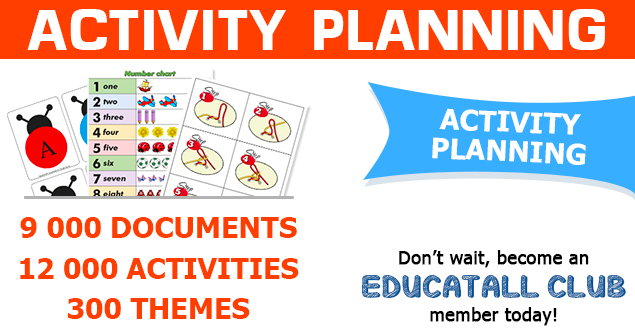Brigitte Langevin is a sleep specialist. She is a speaker and author whose goal is to
improve the quality of sleep and understand dreams. She is the author
of several books on the subject. Helping my child sleep provides a great deal of information for parents. She is a dynamic
person who is much sought-after for her humour and ability to make
theoretical and scientific concepts accessible to all. Nights are more
satisfying so performances during the day are improved thanks to her
help!
One year old does not sleep for long
Question:
I have a serious problem with my one year old. He does not sleep for long periods of time in his bed. He always wants to sleep with me. Neither one of us sleeps well. How can I help him sleep well AND in his bed? Thank you.
Answer:
Dear parent,
The only reason a healthy twelve month old baby can't sleep alone in his bed is that he was never shown how. Very few parents know that babies are unable to fall asleep on their own at birth. We must teach a child gradually, from his very first weeks of life. If we do not teach a child, he will keep the habit of falling asleep near his parents and be dependent on their presence to fall asleep. These habits become conditions the child needs to fall asleep. If your baby does not have these conditions, he is simply incapable of falling asleep. Of course, sleeping with your child is particularly enjoyable when everyone benefits from it: Dad, Mom, and baby. However, as soon as one individual's sleep is disrupted, we must see to it. Sleep is a vital need.
The good news is that it is possible to learn, at any age, to fall asleep on our own and sleep well. The process can be long and difficult but only if the child's resistance is coupled with a lack of willpower on parents' behalf. If you are really determined to respond to your child's need for sleep (and your own for that matter) by instilling a strategy, here is one technique. This method is widely recommended by paediatricians and can generate results in just a few nights. The approach consists of returning to your crying child's room, extending the time between each visit. Your child will eventually create new conditions for falling asleep.
- Place your baby in his bed, in his own room. This is the best way to ensure your baby will be able to reproduce the conditions he needs for falling asleep during nocturnal wakings.
- Give your baby a big hug. Tell him you are going to let him sleep, that it is time to go to bed. Tell him everything will be alright and say good night. Be sure to leave the room before he falls asleep.
- If your baby cries or calls out for you, quickly go to him one time. Tell him in a calm yet firm voice: It's bedtime, everything is okay, go to sleep. Do not hold or rock him. Leave the room rapidly, you should not stay longer than 20 to 40 seconds, regardless of him being calm or not.
- Let him cry for five minutes without intervening (use a timer otherwise time will go by so slowly you may return before the five minutes are up).
- After five minutes, go back in his room without turning the lights on, without holding him, without touching him even to lie him back down, and repeat the same sentence with a neutral voice: It's bedtime, everything is okay, go to sleep.
- Now wait ten minutes before returning to tell him the same phrase. Again, be sure to leave his room quickly.
- For the first night, let your baby cry for a maximum of twenty minutes between each visit.
- You must start all over the second night. Begin with a ten minute wait and work your way up to twenty-five minutes between each visit.
- The third night, avoid going to his room for fifteen minutes the first time and end with a maximum of thirty minutes between each visit.
- If your baby seems calm, do not go back to his room, seeing you may provoke new cries.
- In the morning, regardless of your child's attitude the night before, congratulate him for his efforts. Tell him he is a big boy for successfully falling asleep on his own and that you are very proud of him.
There are other methods which can be successful depending on the parents' and the child's sensitivity. I suggest you purchase Helping my child sleep on the educatall online store. Each technique is explained in detail. Furthermore, the book comes with a free telephone consultation which can sometimes be just the boost one needs.
Brigitte Langevin, author
Speaker and teacher
No
element of this text may be copied, reproduced, distributed, published,
translated, downloaded, posted, or transmitted, in any way, without
prior written authorization from Educatall and the copyright holder.
Elements may be posted and/or downloaded solely for personal and
non-commercial use provided no modifications are made and all notices
of intellectual property are fully shown (name of the author, title of
the article, name of the website, date the text is used and the date of
the part in question).

 Home
Home Theme activities
Theme activities
 Babies and toddlers
Babies and toddlers
 Arts and crafts
Arts and crafts
 Science
Science
 Creative recipes
Creative recipes
 Tips and tricks
Tips and tricks
 Special needs
Special needs
 Extra activities
Extra activities
 Educ-TV
Educ-TV
 Newsletter
Newsletter  Online store
Online store Educatall club
Educatall club

